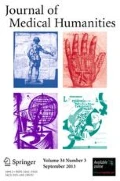The baby’s head is crowning. I’m standing next to the attending physician who says to me, “What are you doing? Help her.” I look at him in awe for a moment. You see, as a medical student, I have a specific set of duties. I count sponges. I hold retractors. However, this physician is not a typical attending. Today my tasks include guiding this baby into the world.
Flashback five years, and I’m sitting in “Medical Humanities,” an undergraduate literature course at the University of California, Santa Cruz. Our first reading is Atul Guwande’s Complications: A Surgeon’s Notes on an Imperfect Science. We discuss the paradox of medicine, where patients expect the best care possible at all times. Each patient wants “perfection without practice.”
Fast forward to the present, and baby is progressing. I feel the slick bundle of tangled hair in my gloves. I know I must rotate the head, so it can glide forward safely. I try to hold on tight, which only makes my gloves slip more. My attending sees this. He puts his hands over mine. The rest of the head comes all at once. Then two shoulders and a body. I feel a rush of relief and resolve that I will do better next time. I have to.
In class we also read Joan Didion’s The Year of Magical Thinking, an account of her grief during the year following her husband’s death. She spoke of a “vortex”—an emotional response to tragedy where one becomes lost in nostalgia. We question whether this experience may be common in medicine.
The baby is a girl. I pass her to mommy, my hands now steady. Mommy beams. Daddy cuts the cord. For a moment, the parents enjoy their new baby.
No one is ever prepared for what comes next.
As we are delivering the placenta and suturing mommy closed, I see the neonatologist return from his assessment. He says the baby has several congenital malformations. She will be affected by these for life and must be transferred to another hospital with more specialists. Her Daddy can go, but Mommy must stay here. Baby is taken, and the room is now silent aside from heartbroken sobs.
Hours later, when I am done with my shift, I go back to see her. I ask if she would like some company. She is still crying. I imagine the “vortex” she must be in, desperate and alone. I think of my gloved hands, shaky and white and then later bloodied and confident. I wonder if practice makes you somehow better at this, and if so—how can that be? And then she starts to speak.
The night rolled in, as sad and heavy as ever. And though powerless to fix the baby’s condition, I stayed. I listened. In that moment, I realized it took all my experiences leading up to this moment (not just those in which I learned the science of medicine) that allowed me to truly practice the art of it.
Nicole K. Zagelbaum, MPH
University of California, Santa Cruz, 2009, Bachelor of Arts with Honors in English Literature
University of California, Los Angeles 2012, Master of Public Health
Medical Student, Class of 2017, Touro College of Osteopathic Medicine
Author information
Authors and Affiliations
Corresponding author
Rights and permissions
About this article
Cite this article
Zagelbaum, N.K. Perspective . J Med Humanit 38, 503–504 (2017). https://doi.org/10.1007/s10912-017-9458-0
Published:
Issue Date:
DOI: https://doi.org/10.1007/s10912-017-9458-0

